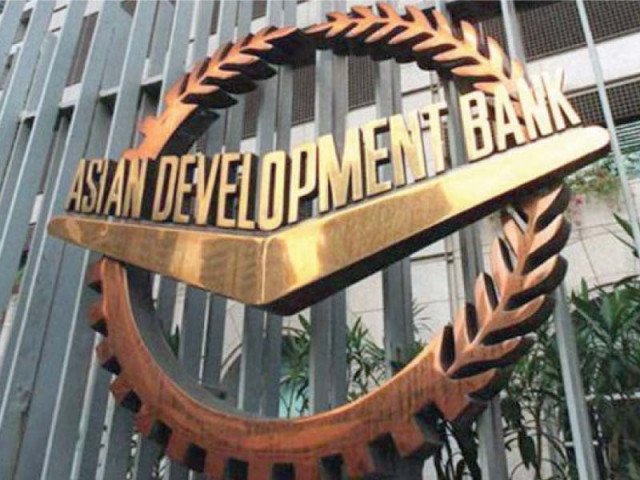Pakistan secures $1.5b ADB lifeline
Loan will help provide social protection, promote food security, support employment

Pakistan on Friday secured a loan of $1.5 billion from the Asian Development Bank (ADB), the largest loan tranche that the lender has ever given to Islamabad, which may help to calm jittery markets amid credit rating downgrade by two rating agencies.
The ADB’s board has approved a financing of $1.5 billion to help Pakistan provide social protection, promote food security and support employment for its people amid devastating floods and global supply chain disruptions, according to a statement issued by the Manila-based lending agency.
However, the loan had been under consideration for the past nine months, much before the floods struck Pakistan, and it has nothing to do with the flood-related financial support.
The ADB said that the loan provided under the Building Resilience with Active Countercyclical Expenditures (BRACE) programme would help fund the government’s $2.3 billion countercyclical development expenditure programme designed to cushion the impact of external shocks, including the Russian invasion of Ukraine.
Pakistan and the ADB will sign a loan agreement on Monday and the money will also be transferred next week, said Ishaq Dar, Federal Finance Minister while welcoming the ADB’s decision.
The $1.5 billion loan is equal to 20% of the country’s gross foreign exchange reserves of $7.5 billion, underscoring its importance for Islamabad that has been critically reviewed in recent days by the international credit rating agencies.
It is the largest loan tranche that the ADB has ever provided to the country. Unlike the Bretton Woods Institutions – the World Bank and the International Monetary Fund (IMF), the ADB has traditionally adopted a positive approach in its dealings with Pakistan.
Fitch Ratings on Friday downgraded Pakistan’s long-term foreign currency issuer default rating (IDR) to “CCC+” from “B”, which reflects a very high level of default risk.
Fitch is the second global rating agency after Moody’s that has downgraded the country’s rating in the past two weeks.
The credit rating agency said that the downgrade reflects “further deterioration in Pakistan’s external liquidity and funding conditions and the decline of foreign exchange reserves”.
This is partly a result of widespread floods, which will undermine efforts to rein in the twin fiscal and current account deficits, it added.
“The downgrade also reflects our view of increased risks of policies potentially undermining Pakistan’s IMF programme and official financial support,” said Fitch.
It said that the falling reserves reflect large, albeit declining, current account deficit, external debt servicing and earlier forex interventions by the State Bank.
Pakistan’s external public debt maturities in FY23 are over $21 billion, mostly to bilateral and multilateral creditors, which mitigates rollover risks, and there are already agreements to roll over some of these.
The credit rating agencies have not positively viewed Pakistan’s move to first seek the rescheduling of debt from the Paris Club and then reverse the decision.
Former finance minister Miftah Ismail had said that Pakistan would seek debt relief from non-commercial creditors but current Finance Minister Ishaq Dar publicly ruled this out, according to Fitch.
BRACE programme is part of ADB’s countercyclical support facility, which does not carry conditions that are part of the traditional lending portfolio. The loan has been obtained to cope with the worsening macroeconomic crisis compounded by the Russia-Ukraine war and devastating floods.
The ADB will provide $1.25 billion out of its ordinary capital resource at the Secured Overnight Financing Rate (SOFR) plus 0.75%, plus a surcharge. Current SOFR is 2.28%, which will take the total interest rate to over 3%.
The $1.25 billion loan has been secured for seven years. Another $250 million is being obtained at a rate of 2% for 25 years.
“Pakistan’s recovery from the Covid-19 pandemic has been impeded by external shocks,” said ADB Director General for Central and West Asia Yevgeniy Zhukov. Zhukov will visit Pakistan next week to oversee the signing ceremony.
Increasing business costs and rising living expenses are affecting millions of Pakistanis, especially the poor and vulnerable, according to the lender.
It said that the ADB’s programme would help the government manage the impact of high prices, increasing food insecurity, slowing business activity, and reducing income for the vulnerable groups, many of whom were also reeling from the devastating floods.
The ADB’s assistance will help to expand the number of families receiving cash transfers from 7.9 million to 9 million, increase the number of children enrolled in primary and secondary schools, and enhance the geographic coverage of health services and nutritional supplies for the pregnant and lactating mothers and children below two years.
Published in The Express Tribune, October 22nd, 2022.
Like Business on Facebook, follow @TribuneBiz on Twitter to stay informed and join in the conversation.



















COMMENTS
Comments are moderated and generally will be posted if they are on-topic and not abusive.
For more information, please see our Comments FAQ